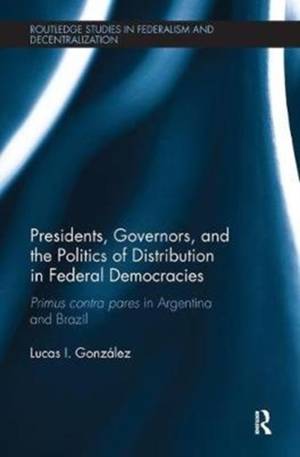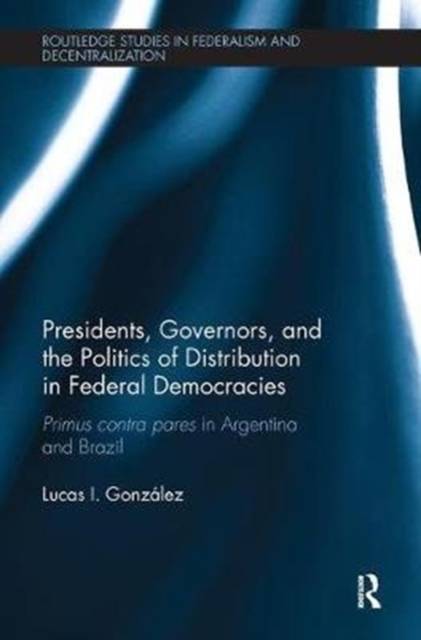
- Afhalen na 1 uur in een winkel met voorraad
- Gratis thuislevering in België vanaf € 30
- Ruim aanbod met 7 miljoen producten
- Afhalen na 1 uur in een winkel met voorraad
- Gratis thuislevering in België vanaf € 30
- Ruim aanbod met 7 miljoen producten
Presidents, Governors, and the Politics of Distribution in Federal Democracies
Primus Contra Pares in Argentina and Brazil
Lucas I GonzálezOmschrijving
Tensions between central authorities and subnational units over centralization and fiscal autonomy are on top of the political agenda in many developing federal countries.
This book examines historical changes in the balance between the resources that presidents and governors control and the policy responsibilities they have to deliver. It focuses on Argentina and Brazil, the most decentralized federal countries in Latin America, with the most powerful sub-national governments in the region. Using formal modelling, statistical tools, and comparative historical analyses, it examines substantive shifts in the allocation of resources and the distribution of administrative functions and explains under which conditions these changes occur. In doing so, it presents theoretical and comparative implications for the study of fiscal federalism and the functioning of developing federal democracies.
This text will be of key interest to scholars and students of federalism, intergovernmental relations, decentralization, and sub-national politics and more broadly to those studying comparative politics, democratization, political elites, public policy and economics.
Specificaties
Betrokkenen
- Auteur(s):
- Uitgeverij:
Inhoud
- Aantal bladzijden:
- 340
- Taal:
- Engels
- Reeks:
Eigenschappen
- Productcode (EAN):
- 9781138487345
- Verschijningsdatum:
- 5/02/2018
- Uitvoering:
- Paperback
- Formaat:
- Trade paperback (VS)
- Afmetingen:
- 156 mm x 233 mm
- Gewicht:
- 629 g

Alleen bij Standaard Boekhandel
Beoordelingen
We publiceren alleen reviews die voldoen aan de voorwaarden voor reviews. Bekijk onze voorwaarden voor reviews.











